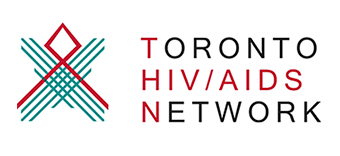City News
THN works with key partners to support raising issues and opportunities with the City of Toronto that impact HIV and the HIV response in Toronto.
For any questions, please contact Murray Jose-Boerbridge at THN.
Toronto Poverty Reduction Strategy – Update
The Toronto Poverty Reduction Strategy is a 20-year plan that was unanimously approved by City Council in 2015. The strategy focuses on housing stability, services access, transit equity, food access, the quality of jobs and incomes, and systemic change. The 2019-2022 Poverty Reduction Strategy Action Plan will outline actions and initiatives that advance recommendations.
For more detailed information, visit: Toronto Poverty Reduction Strategy and TO Prosperity 2015-2018 Term Action Plan.
City “Policy on Political Activities”
The City recognizes the importance of civic engagement and encourages civic engagement.
THN has received questions about limitations for not-for-profits in educating City Council (Councillor visits, e-mails, deputations) about the importance of City services, especially for organizations which depend upon City funding for some of their important work in the community.
The City has a Policy on Political Activities that outlines activities that are “restricted” and “unrestricted activity” within any City grant-funded activity. The policy is consistent with Canada Revenue Agency regulations for registered charities and applies to political activity related to municipal, provincial and federal elections.
As a general rule, for City grants funding, or any government funding and for charitable organizations, the key is to be non-partisan. In the language of the City policy: “A grant recipient may not use funds provided by the City to oppose or endorse a named candidate, party, or elected official.” In general, a protective and strategic approach is to focus criticisms or agreement on the policies or proposed policies of elected officials. It’s about what they have proposed or are doing, not who they are, nor about their preferences.
Information on how to make deputations to committees of Council is found on the City web-site
Toronto Urban Health Fund (TUHF)
The Toronto Urban Health Fund (TUHF) replaces the former AIDS Prevention Community Investment Program and Drug Prevention Community Investment Program.
TUHF provides one year and three year project funding to non-profit community based organizations to support initiatives under the following three streams:
- HIV (Human Immunodeficiency Virus) prevention
- Harm reduction
- Child and youth resiliency
For more information, visit: City of Toronto TO Urban Health Fund
The City of Toronto Grants – not HIV specific
These are partnerships or investments that help the City of Toronto achieve its social, economic and cultural goals for its residents. Social Planning Toronto produced “Building Toronto, Creating Community” (October 2014), a report on ‘The City of Toronto’s Investment in Nonprofit Community Services’ that demonstrates the City’s investments, the benefits to the City and its communities and the need for a new, stable investment plan.
The City’s goals are better achieved by supporting the work of organizations that are closer to the communities they serve. City of Toronto Community Investment Funding Program includes Community, which funds services that facilitate “access to services that improve social outcomes for vulnerable, marginalized and high-risk communities.” HIV-related services partner with a number of these agencies.
